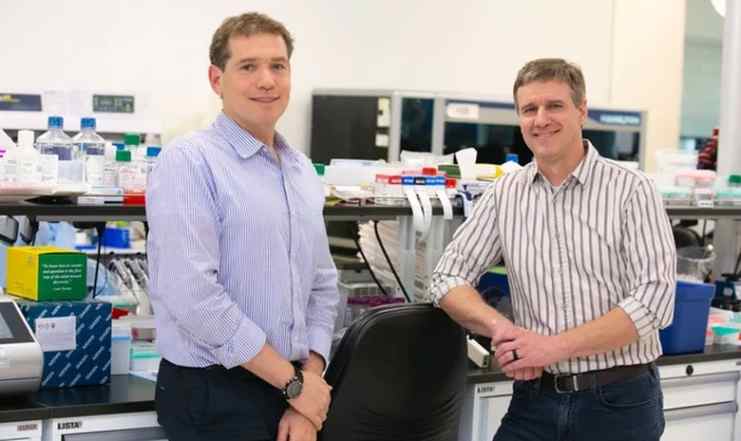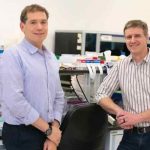Karius secures $165M In Series B funding led by SoftBank to provide genomic insights for infectious diseases

Karius, a life sciences startup that markets a test that can quickly detect hard-to-diagnose infections through a simple taking of blood, has secured $165 million in a new funding round led by SoftBank Vision Fund 21, with additional participation from General Catalyst, HBM Healthcare Investments, and existing investors Khosla Ventures and LightSpeed Venture Partners.
Karius said it will use the new cash infusion to expand access to its proprietary microbial cell-free DNA technology to help doctors diagnose infectious diseases, broaden clinical development, and accelerate technology innovation.
Founded in 2014 by Mickey Kertesz, Steve Quake, and Tim Blauwkamp, the San Francisco, California-based Karius provides genomic insights for infectious diseases to enable clinicians to make life-saving treatment decisions. Karius pioneered the discovery and application of microbial cell-free DNA, enabling non-invasive detection of pathogens throughout the body with its Karius Test. Today, the Karius Test is used in over 100 hospitals and health systems nationwide.
“This transformative round will allow Karius to help more patients faster, fuel the next wave of clinical studies, and accelerate technology innovation,” said Karius CEO, Mickey Kertesz. “We are humbled to be part of the team that delivered the first clinical applications of microbial cell-free DNA and are excited about what’s ahead for Karius.”
Microbes infecting different parts of the human body leave traces of their DNA in blood, known as microbial cell-free DNA (mcfDNA). The Karius Test uses novel genomics and AI approaches to identify and measure the mcfDNA of more than 1,000 clinically relevant pathogens (including bacteria, fungi, DNA viruses, and parasites) from a single blood draw, informing doctors about the likely types and quantities of infectious microorganisms affecting their patients. The Karius Test delivers results typically the day after sample receipt, allowing doctors to better diagnose and treat their patients.
“Infectious diseases are the second leading cause of deaths worldwide. Karius’ innovative mcfDNA technology accurately diagnoses infections that cannot be determined by other existing technologies,” said Deep Nishar, Senior Managing Partner at SoftBank Investment Advisers. “We are excited to support Karius and their mission to use genomic insights to fight infectious diseases and save lives.”
“Next-generation sequencing (NGS) has already transformed diagnostics through non-invasive prenatal testing and liquid biopsies for oncology,” said Chandra P. Leo, Investment Advisor at HBM Partners. “Karius is now applying the power of NGS of microbial cell-free DNA to the field of infectious disease diagnostics, helping physicians to non-invasively identify a broad range of pathogens in severely ill patients.”
Last year, the journal Nature Microbiology published the analytical and clinical validation of the Karius Test showing that the test more accurately and rapidly identified the likely pathogens causing an infection when compared to standard methods.2
More recent peer-reviewed studies have also presented real-world clinical utility of the Karius Test in various populations with serious illnesses. For example, immunocompromised patients are vulnerable to a wide variety of severe infections and frequently require invasive procedures to identify the pathogen. In a recent study of immunocompromised pediatric patients, the Karius Test non-invasively identified the pathogen causing infection more frequently than invasive procedures, and even more frequently than all microbiological tests combined. Nearly two-thirds of the invasive diagnostic procedures performed in these pediatric patients might have been avoided based on the Karius Test results.3
Additional publications support the use of Karius Test in other applications including complex pneumonia, invasive fungal infections, and endocarditis. These studies demonstrate the value of mcfDNA to help clinicians rapidly make critical treatment decisions.

